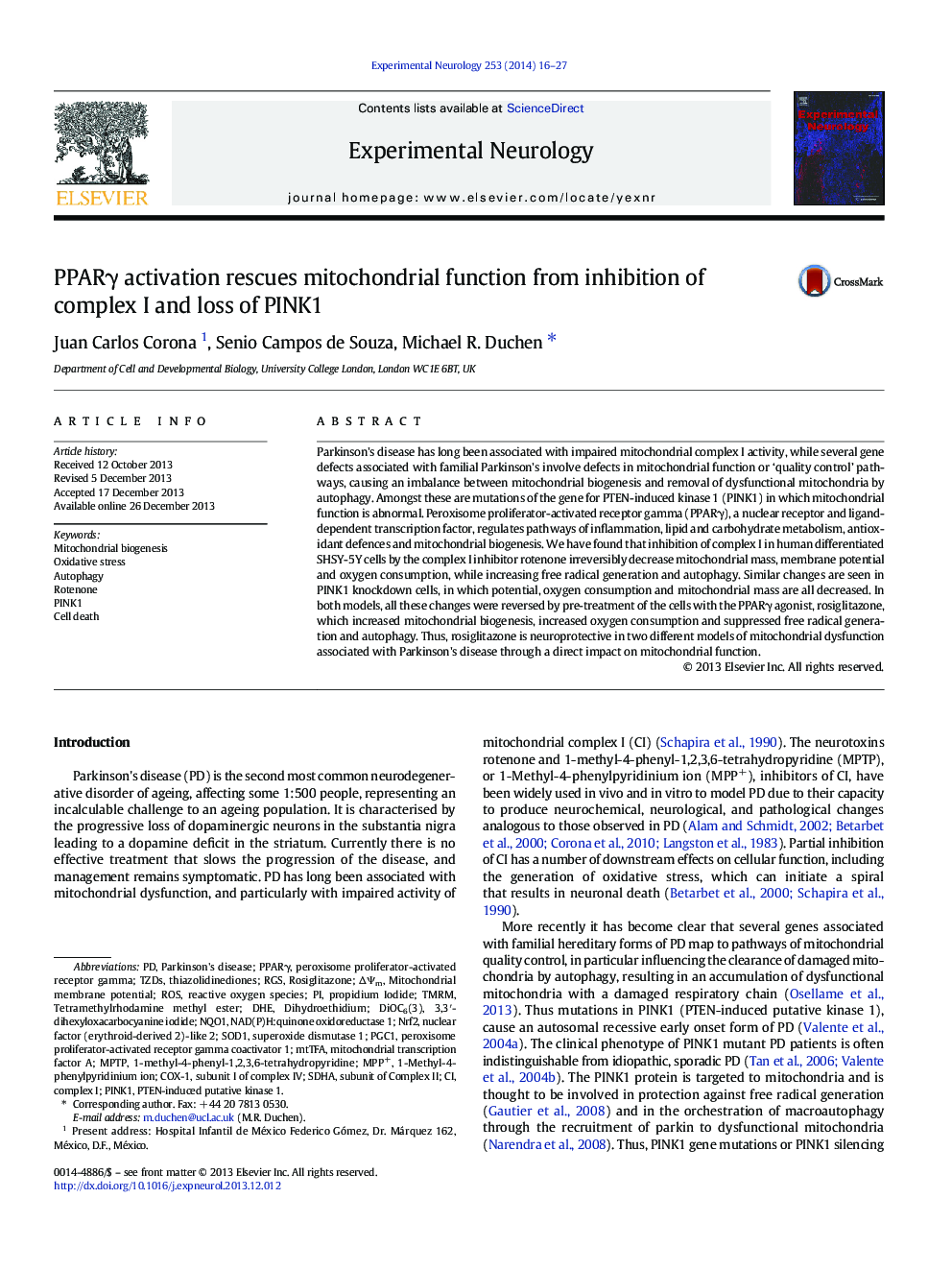| Article ID | Journal | Published Year | Pages | File Type |
|---|---|---|---|---|
| 6017837 | Experimental Neurology | 2014 | 12 Pages |
Abstract
Parkinson's disease has long been associated with impaired mitochondrial complex I activity, while several gene defects associated with familial Parkinson's involve defects in mitochondrial function or 'quality control' pathways, causing an imbalance between mitochondrial biogenesis and removal of dysfunctional mitochondria by autophagy. Amongst these are mutations of the gene for PTEN-induced kinase 1 (PINK1) in which mitochondrial function is abnormal. Peroxisome proliferator-activated receptor gamma (PPARγ), a nuclear receptor and ligand-dependent transcription factor, regulates pathways of inflammation, lipid and carbohydrate metabolism, antioxidant defences and mitochondrial biogenesis. We have found that inhibition of complex I in human differentiated SHSY-5Y cells by the complex I inhibitor rotenone irreversibly decrease mitochondrial mass, membrane potential and oxygen consumption, while increasing free radical generation and autophagy. Similar changes are seen in PINK1 knockdown cells, in which potential, oxygen consumption and mitochondrial mass are all decreased. In both models, all these changes were reversed by pre-treatment of the cells with the PPARγ agonist, rosiglitazone, which increased mitochondrial biogenesis, increased oxygen consumption and suppressed free radical generation and autophagy. Thus, rosiglitazone is neuroprotective in two different models of mitochondrial dysfunction associated with Parkinson's disease through a direct impact on mitochondrial function.
Keywords
sdhARGSSOD1TMRMΔΨmMPTP1-methyl-4-phenylpyridinium ionPPARγCOX-1PGC1Nrf2NQO11-methyl-4-phenyl-1,2,3,6-tetrahydropyridineDiOC6(3)MPP+mtTFANAD(P)H:quinone oxidoreductase 1ROSTZDsParkinson's diseasethiazolidinedionesdihydroethidiumrosiglitazonesuperoxide dismutase 1mitochondrial transcription factor Anuclear factor (erythroid-derived 2)-like 2tetramethylrhodamine methyl esterDHEMitochondrial membrane potentialperoxisome proliferator-activated receptor gamma coactivator 1Propidium iodidePeroxisome proliferator-activated receptor gammaReactive oxygen species
Related Topics
Life Sciences
Neuroscience
Neurology
Authors
Juan Carlos Corona, Senio Campos de Souza, Michael R. Duchen,
